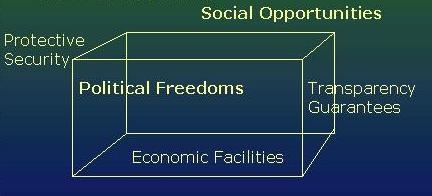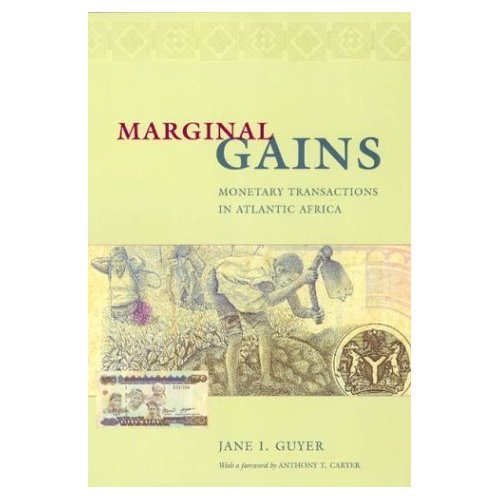The ethical position taken by academics and intellectuals with respect to the objects of their attention – research, theory, intervention – arises from a combination of environmental, institutional, and personal (i.e. political) commitments. When those commitments come into conflict, the ethical positions taken or implied by knowledge producers face the possibility of transformation. And, where globally interconnected lives at both macro- and micro-scopic levels are concerned, the conditions of possibility of change are omnipresent and intense. Arjun Appadurai (2000) summarizes the root of these conditions as a “growing disjuncture between the knowledge of globalization and the globalization of knowledge.”
Continue reading
Tag Archives: economics


Reflection – Sen – Development as Freedom
One is struck, floating through Amartya Sen’s argument in Development as Freedom, by the sheer complexity that policymakers face when confronting entrenched conditions of poverty, inequality, and coercion. Incentives to increase productivity or efficiency in markets cannot, in themselves, abate these structural problems, because the aspects of development that bolster economic agency must simultaneously address governmental and cultural practices. Sen’s position, then, that freedom is both instrumental to development and constitutive of it, comes as a concrete and coherent rejoinder to those whose assumptions that certain cultures depend on illiberal traditions to function. Continue reading

Reflection – Jane Guyer
The economic anthropology of Jane Guyer, concentrated on Africa’s western and equatorial regions, finds rich expression in this collection of the Lewis Henry Morgan lecture series delivered at the University of Rochester some fifteen years ago. Guyer’s methodological reflexivity brings her implicit and explicit critique to bear on both traditional anthropology and traditional economics, the result of which is a nuanced, multivariate logic of exchange and decision-making that brings close contextualization to the fore of questions that might otherwise veer impossibly into the abstract. Historically grounded and empirically driven, Guyer elucidates the curious interplay between formal and informal markets in Atlantic Africa, particularly the role of circulation of multiple currencies at once. Continue reading
Internet – On the Markets
We turn now from contextual summaries of broad topics to more specific analyses of focused problems. The case in point this week is the curious interplay of market and economic themes in discourses and studies of the internet. There are several fascinating phenomena associated with the rise of the internet as a platform for trade as well as communication and computation. These, however, have roots that run deeper than their own emergence, in the economic and historical conditions that undergird the internet’s development. As trade and commerce proliferate online, they mimic (at least at first) the structure and behavior of their non-internet predecessors, which themselves must shift or extend their positions to accomodate this competition. As internet markets continue to grow and find their own forms, their effects on their non-internetted counterparts deepens. And as financial instruments and economic models become more closely attuned to internet machinations, it becomes easier – from a cultural or social standpoint – to overlook the most obvious historical and global correlations to this situation.

A silly image for a spammy post on webtech-team.com